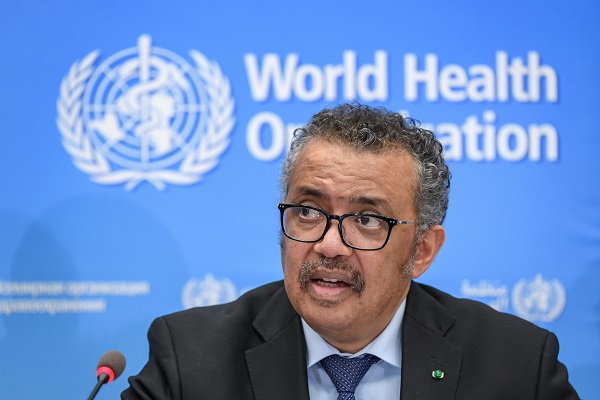
As the world marks the second year of dealing with the novel Coronavirus 2019 (COVID-19) pandemic, the director-general of the World Health Organisation (WHO), Dr. Tedros Ghebreyesus has shared lessons learnt by the world body on pandemic preparedness and response.
Giving his opening remarks at the COVID-19 Global Research and Innovative Forum today (February 24), he pointed out that the pandemic is teaching the world many painful lessons.
According to him, the first is that pandemic preparedness is a constant, long-term investment, even as he underscored the reality that the world cannot be safer without investments in science, research and innovation.
The second lesson, he said, is that “by embedding research at the heart of the pandemic response, we can achieve two goals: to help us end the acute phase of the current pandemic, and to protect us from the epidemics and pandemics of the future; and the third lesson is that even as we invest in research now, we must also be making longer-term investments in research capabilities around the globe, to prepare us for future viruses and other health threats”.
Ghebreyesus averred that the world must come together to support and develop the capacity of research institutions and researchers in low- and middle-income countries.
“WHO and partners have maintained a network of global researchers and experts that have produced a Global Research Roadmap to focus research efforts on COVID-19, debate research priorities, develop methods and critically appraise emerging evidence.
“This effort involves hundreds of virtual scientific consultations with thousands of scientists around the world.
“These global research efforts have filled in many of the key knowledge gaps around COVID-19 identified in the roadmap, including the epidemiological behaviour of the virus, supporting the development of safe and effective vaccines in record time and evaluating potential therapeutics,” he said.
He further said that this rapid scale-up and coordination of research was facilitated by work over years by WHO’s Research and Development Blueprint for Epidemics, which was established after the West African Ebola epidemic to identify and stimulate research and development for high-risk pathogens.
“Scaling up our collective efforts quickly during this pandemic was possible because we were already collaborating globally on shared priorities. This is the essence of collaborative foresight and collective preparedness that we need in future,” he added.


